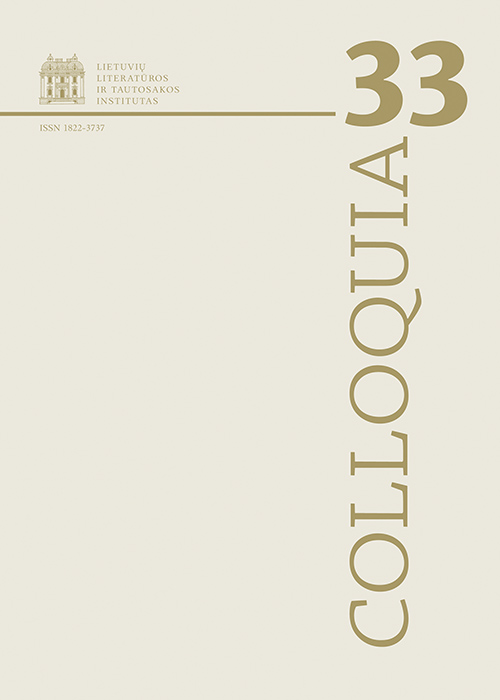Algirdas Julius Greimas: išsilavinimas, įsitikinimai, karjera
Santrauka
Šiame straipsnyje, remiantis archyviniais dokumentais, laiškais, paskelbtais lietuviškais šaltiniais, pokalbiais su įvairiais asmenimis, nubrėžiamos pagrindinės Algirdo Juliaus Greimo intelektinio gyvenimo linijos nuo mokyklinių metų pradžios iki 1940 m. Aprašomas Greimą ugdęs kalbinis ir kultūrinis kontekstas, išryškinami jam žymų poveikį padarę asmenys, metodai, autoriai ir knygos. Galiausiai pateikiama aprašytų patirčių sintezė ir nubrėžiama būsima Greimo mąstysenos ir veiklos trajektorija.
Greimo raidai svarbiausios buvo keturios tradicijos. Lietuva formavo jo asmenybę ir tapatybę, įteigė jam europinio folkloro tradiciją, įdiegė įsipareigojimą įsijungti į tautinės kultūros ir bendruomenės kūrimą. Slavų tradicijos įvedė į jo akiratį metafizinę perspektyvą, skatino jo revoliucingumą mene ir visuomenėje. Germaniškos kultūros praturtino jo istorinį žvilgsnį ir metodologijas, pastūmėjo susidomėti estetinėmis teorijomis ir pamatiniais filosofiniais klausimais, pasiūlė jam kalbos tyrimų metodą bei etines nuostatas. Prancūzija suformavo jo antrąją tapatybę, atskleidė klasicizmo ir Apšvietos idealus, lavino jo poetinį skonį. Šių skirtingų paveldų elementai maitino vaisingas Greimo įtampas – tarp ištikimybės ir atvirumo, istoriškumo ir visuotinumo, tarp proto, jausmo ir sensualumo.
